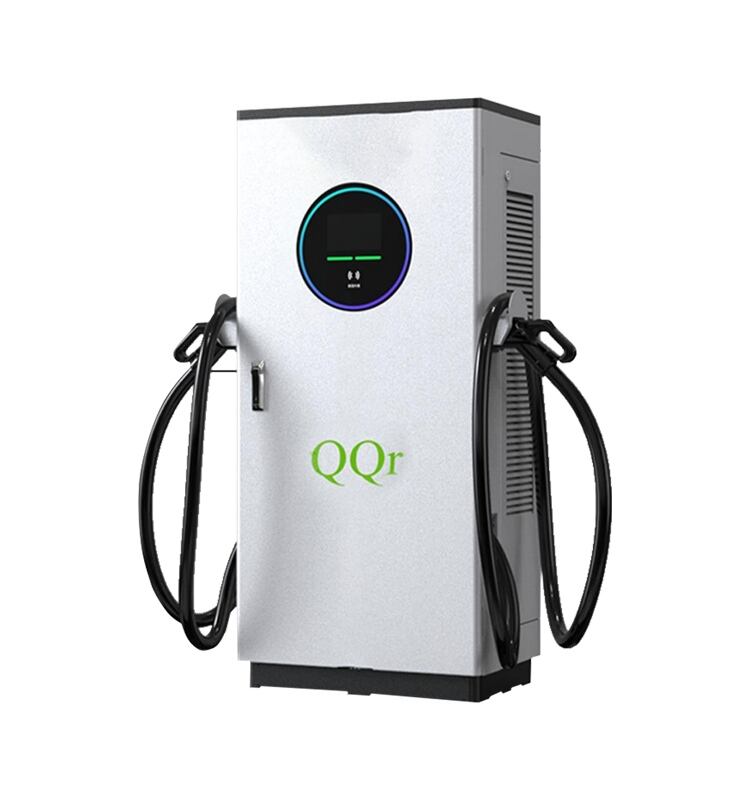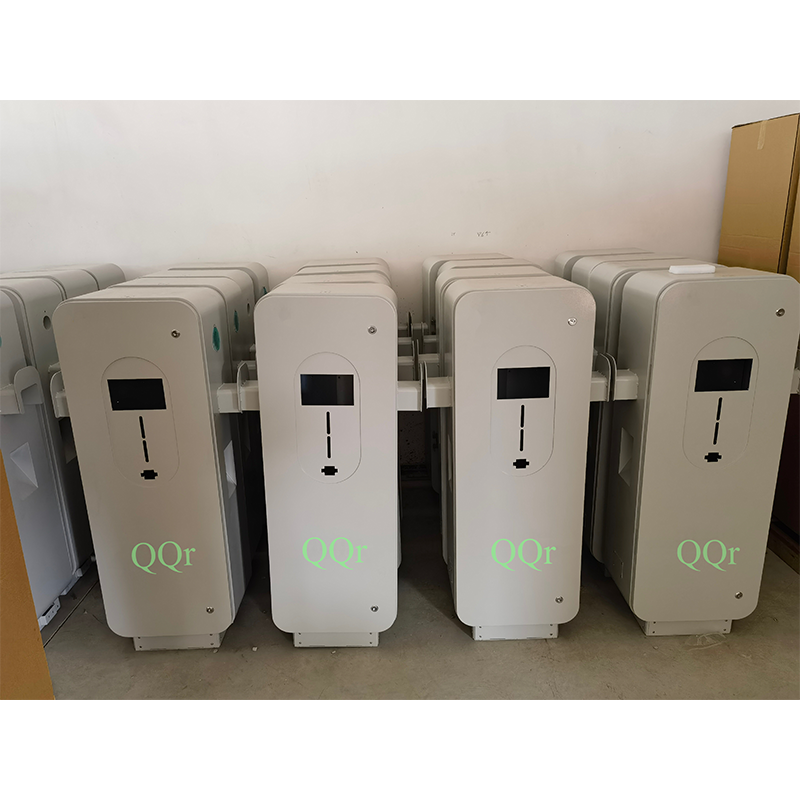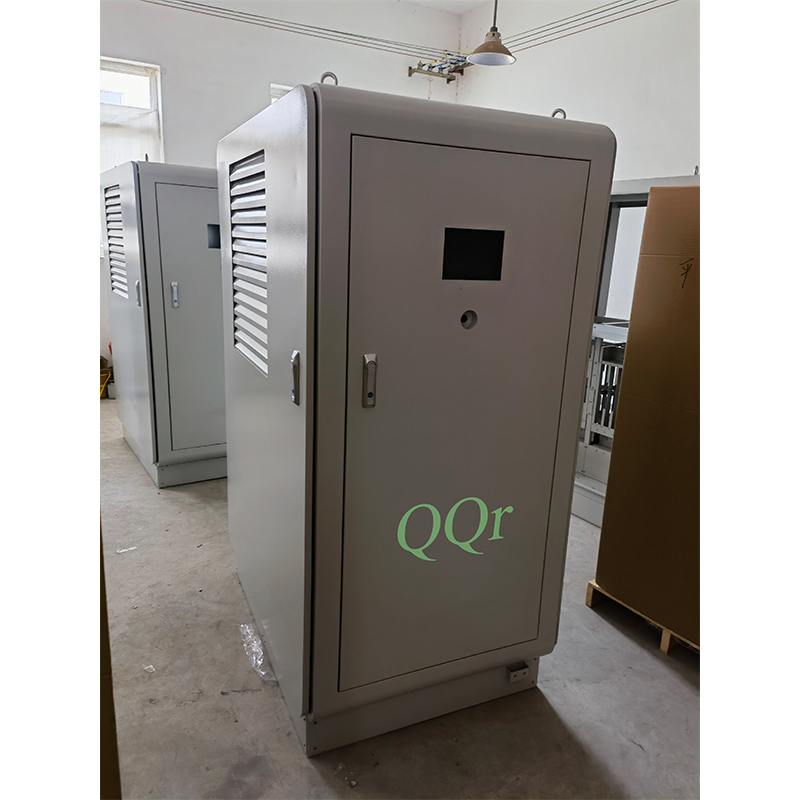How AC EV Chargers Are Transforming Residential Charging
Understanding Customized Fast Charging Solutions
Fast charging solutions that are customized basically mean charging stations made specifically for different kinds of electric vehicles and their surroundings. These systems work around all sorts of charging needs and whatever limitations exist in local infrastructure, which makes things much better for people actually using them day to day. Getting EVs properly charged matters a lot whether someone drives through busy city streets or out in the middle of nowhere where there aren't many options. The good news is these special charging setups handle all sorts of differences between cars too. Some EVs have bigger batteries than others, need different ports to plug into, and require varying amounts of power when they charge up. Tesla Model S owners might need something completely different compared to what works best for a Nissan Leaf driver.
Tailored charging solutions really matter because they make charging more efficient while helping get more people into electric vehicles. Different EVs have different requirements too. A small city car needs something completely different compared to those big trucks we see on highways. Getting this right helps batteries last longer and perform better over time. These customized approaches actually help break down some of the roadblocks stopping mass adoption of EVs since they offer charging options that can scale up or down depending on what someone needs. When fast chargers are made specifically for certain types of vehicles, it creates a smoother experience overall for everyone involved in the EV world. More drivers start switching away from gas guzzlers when they know there's reliable infrastructure waiting for them wherever they go.
Benefits of Customized Fast Charging Solutions
Tailored fast charging options give electric vehicles a real boost when it comes to getting charged up quickly across different models on the market today. When we adjust how electricity flows into an EV based on what that particular car needs, we're able to cut down on wait times substantially. Some companies have actually managed to make their charging systems work about 30 percent better than regular chargers out there. The faster charging means big things for people who drive EVs daily and also for companies running whole fleets of them. Less time spent waiting at charging stations translates directly into more time actually moving goods around town or getting folks where they need to go without unnecessary delays.
Customized fast charging options do more than just cut down on wait time they actually manage power much better according to what's needed right now. The systems work smart by changing how much electricity goes to each vehicle depending on both what the car needs and what the power grid can handle at any given moment. When too many people try to charge their cars at once, these smart systems help prevent wasted energy while keeping the overall electrical system from getting overloaded. As electric vehicles become more common on roads everywhere, having this kind of intelligent energy management becomes increasingly important for building a charging network that won't strain our existing power resources.
Custom interfaces at charging stations really make a difference for users thanks to things like easy navigation and tailored charging options. When designers focus on creating something simple to operate and actually listen to what people tell them works (or doesn't work), the whole experience gets better over time. Research indicates these personalized setups boost satisfaction levels because they simplify the process and let folks adjust settings according to their needs. Take for instance someone who charges during off-peak hours but wants alerts when done. These kinds of features not only keep customers happy but also help push electric vehicle usage forward across different communities.
Key Features of Custom Fast Charging Stations
One of the key things that makes custom fast charging stations stand out is how they handle resources on the fly, which cuts down waiting around for customers. These stations basically watch what's happening with people coming in and going out, then adjust how electricity gets distributed accordingly. They send power to spots where it's really needed right now instead of letting it sit unused somewhere else. What this means in practice is smoother operation at all sorts of charging locations without those annoying backup lines forming. Anyone who lives near busy commercial districts knows just how helpful this kind of system becomes during rush hours when electric vehicles start pouring in after work or before weekend trips.
When it comes to custom fast charging stations, safety takes top priority through strict adherence to established safety standards and cutting edge technology. The stations actually include things like the ISO 15118 protocol, which helps create secure charging sessions and stops people from accessing them without permission. Following industry guidelines matters a lot because it means everything works properly to keep both the equipment and vehicles safe, but really what counts most is keeping users protected during charging. Charging stations that stick to these standards build customer confidence over time, making people feel comfortable knowing their devices are being charged safely every single time they plug in.
The smart communication systems make all the difference when it comes to how custom fast charging stations actually work. These systems give people better experiences while charging their vehicles and help operators run things more efficiently thanks to IoT tech. Basically, what happens is that the stations talk to electric cars through a bunch of connected gadgets in the background. When everything stays connected, station managers can keep tabs on what's going on in real time and adjust things as needed. Drivers get notifications about their charge status too, plus they can set up preferences for how their car charges. The whole point of bringing IoT into play here is twofold really: it makes charging faster and smoother, and at the same time gives drivers something that feels pretty intuitive to use rather than just another complicated machine.
Challenges in Implementing Customized Fast Charging Solutions
Getting customized fast charging solutions up and running runs into serious infrastructure roadblocks quite frequently. The main problem tends to be whether there's enough electricity available and if the local power grid can actually handle it. A lot of places simply don't have the kind of strong electrical setup needed for those high speed charging stations since they need so much juice to work properly. This is especially true in rural spots or developing regions where the old fashioned grid systems just cant cope with extra demand. If nothing gets done about upgrading these electrical networks, then folks living in these areas will probably end up waiting forever for their cars to charge reliably.
Getting different EV models to work with custom fast charging stations remains a major headache for deployment teams. Car makers have their own charging standards and tech specs, so most stations can only handle certain brands or models. The problem runs deep too - voltage requirements vary widely between manufacturers, and connectors aren't standardized either. Tesla owners can plug into Superchargers anywhere, but other brands often struggle finding compatible stations on long trips. With so many new EV models hitting the road every year, figuring out how to make these standards play nice together isn't just important anymore, it's becoming absolutely essential if we want drivers to actually trust and rely on public charging networks.
Following regulations and meeting industry standards matters a lot when setting up custom fast charging systems. Getting aligned with local rules isn't just about ticking boxes for compliance either it's essential if businesses want to stay out of legal trouble and keep operations running smoothly. Charging stations need to hit certain benchmarks, and these requirements change quite a bit from one region to another, which complicates things when deploying new infrastructure. Companies expanding their charging network face real challenges here they have to keep an eye on all these changing regulations constantly, which eats up time and money. For many operators, this regulatory maze becomes a major cost factor as they try to roll out their services across different markets.
Exploring Innovative Products for Fast Charging
Looking at new fast charging solutions shows how tech has evolved to keep up with the exploding need for EV charging stations across the country. Take the 120KW DC EV Charging Station for example. What makes this one special? Well, it comes packed with serious protection against all sorts of problems, runs efficiently most of the time, and doesn't require constant tinkering when something goes wrong. Built to handle pretty much anything Mother Nature throws at it, this unit has an IP54 rating so dust and water won't mess with its performance. Behind the scenes there are actually multiple layers of electrical safeguards working together to keep everyone safe. The system manages to hit around 95% efficiency, which isn't bad considering what it does. Plus, operators get to work with an intuitive interface that makes monitoring and adjusting settings straightforward during those busy charging sessions.

The Ultra Fast 480kW Four Terminal Eight Gun Split DC Charging System represents a major leap forward in EV charging technology. With its impressive 480 kilowatt capacity, this system can charge several vehicles at once without compromising performance. What makes it stand out is its smart way of managing power across all eight charging ports, so no one has to wait around when multiple cars need charging at the same time. We've seen these systems work wonders at busy urban charging hubs and along major highways where drivers want to get back on the road quickly after topping up their batteries. The ability to handle heavy traffic without long waits makes all the difference for businesses operating public charging networks.

The High Density Charging Hub is pretty much the latest thing when it comes to fast charging tech, designed specifically for places where demand is sky high such as busy city streets and train stations. At its core sits a powerful 480 kW unit that splits power between eight charging ports, so electric vehicle owners don't have to wait forever in line. What makes this setup work well is the CAN Bus system that keeps tabs on everything happening in real time. This means operators can spot issues before they become problems while keeping things running smoothly and safely for everyone using the station.

These innovative fast-charging solutions showcase the industry's response to the challenges of EV infrastructure development by prioritizing efficiency, safety, and user convenience, ultimately reducing charging times and improving consumer experiences.
Future Trends in Customized Fast Charging Solutions
Looking ahead, customized fast charging solutions will depend a lot on incorporating renewable energy options like solar power and wind turbines. When we talk about sustainable transportation, these green energy connections really matter because they cut down our dependence on gas and oil while keeping those harmful carbon emissions low. Take solar panels at EV charging spots for instance. They actually make the whole system work better and greener, so when someone charges their electric car, it's basically running on sunlight instead of dirty fuel. The good news doesn't stop there either. Going green isn't just about saving the planet. Charging stations that switch to renewables often see their bills drop over time too. Sure, upfront costs can be steep, but many operators find that the long term savings make it worth the investment.
The latest improvements in charging tech, especially those related to wireless and inductive charging, promise to make life much easier for electric vehicle owners while also making the whole process more efficient. With wireless charging, there's no need to deal with messy cables anymore. Just park the car over a special charging pad and voila it starts charging automatically. Think about all the time saved not fumbling with connectors every time we want to top off the battery. And let's not forget about inductive charging stations. These can actually be placed almost anywhere from driveways to public parking lots which means people won't have to travel far to find a spot. The wider availability of these charging points is probably going to be one of the main factors pushing more folks toward switching to electric vehicles.
When it comes to making cities smarter, tailored fast charging stations for electric vehicles are changing how we think about urban design and transportation networks. Cities that incorporate these charging points strategically throughout their streets can actually make getting around easier for everyone, which means fewer cars stuck in traffic and cleaner air overall. The whole system works better when paired with smart grid technology too. These grids basically act as traffic cops for electricity, figuring out where power is needed most at any given moment and sending it there efficiently. What makes this setup so appealing isn't just about keeping EV owners happy though. It fits right into the bigger picture of creating neighborhoods where everything from streetlights to public transport talks to each other, adapting as our reliance on electric vehicles continues to grow year after year.
Conclusion: The Path Forward for Customized Fast Charging
Customized fast charging technology is moving forward thanks to some pretty cool innovations and growing environmental awareness. We're seeing real improvements when these charging systems connect with clean power options like solar panels and wind turbines. This kind of setup cuts down on pollution while making better use of available energy resources. For electric vehicle owners, this means faster charges without harming the environment so much. Plus, companies that adopt these practices often save money in the long run because they rely less on traditional grid electricity during peak hours.
New tech in EV charging, especially those wireless or inductive systems, is coming soon and could really change the game for powering our electric cars. The main goal here is making things easier for drivers who get tired of fumbling with cords every time they want to recharge. Imagine pulling into a parking spot and just driving over a pad that charges the car automatically. That kind of convenience makes sense for busy people who don't want to waste time plugging in. While we wait for these systems to become reliable enough for everyday use, there's still work to be done on getting them efficient enough to compete with traditional methods. But if successful, this technology might finally solve one of the biggest complaints about going electric.
Fast charging solutions tailored for specific needs are becoming really important for smart city development. When cities start incorporating this tech into their planning processes, they actually get better electric vehicle infrastructure and overall mobility options. We're seeing more charging points popping up in strategic spots around town centers and residential areas, which makes getting around much easier for people driving EVs. Looking ahead, as our cities grow and change shape, these customized charging systems will be essential for handling all those extra electric cars on the road while also helping us move toward greener urban environments.

 EN
EN
 AR
AR
 BG
BG
 HR
HR
 CS
CS
 DA
DA
 NL
NL
 FI
FI
 FR
FR
 DE
DE
 IT
IT
 PL
PL
 PT
PT
 RO
RO
 RU
RU
 ES
ES
 SV
SV
 TL
TL
 IW
IW
 ID
ID
 LT
LT
 SR
SR
 SK
SK
 SL
SL
 VI
VI
 ET
ET
 HU
HU
 MT
MT
 TH
TH
 TR
TR
 AF
AF
 MS
MS
 GA
GA
 CY
CY
 HY
HY
 AZ
AZ
 KA
KA
 LA
LA
 KK
KK
 UZ
UZ
